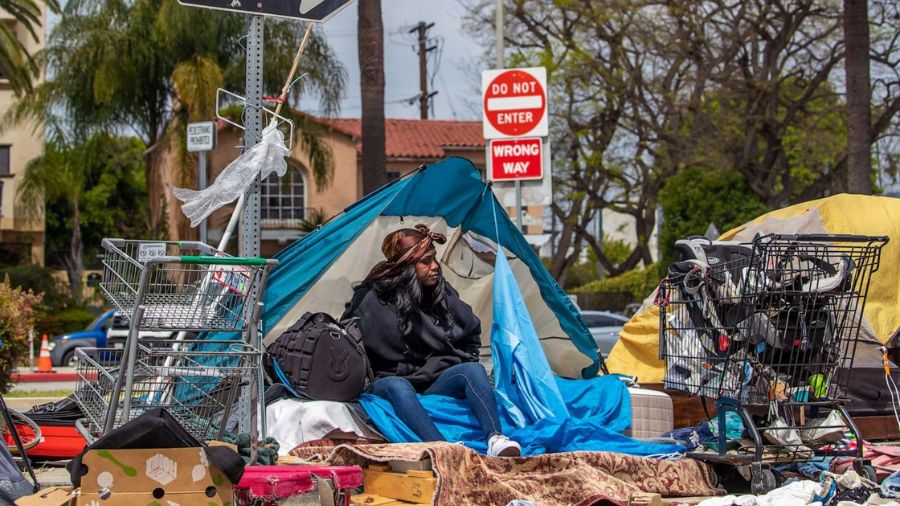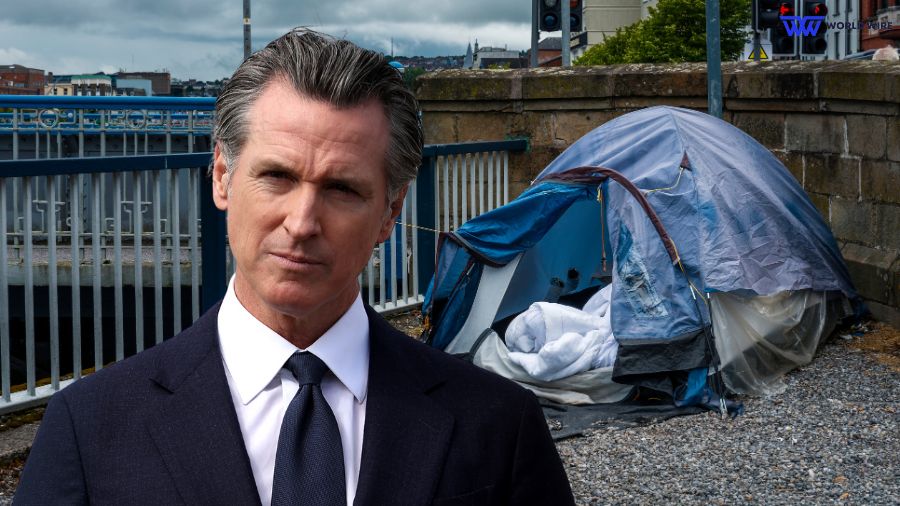The homelessness crisis in California has brought together Democratic Gov. Gavin Newsom and GOP Rep. Darrell Issa in a political struggle.
On Monday, the Supreme Court will hear a case determining whether local governments can remove encampments if there aren’t enough permanent shelters for homeless people.
The outcome of this case could have a huge impact on how cities in California and other states address the encampments and homelessness problem.
For years, California has been struggling with a major issue of encampments, such as tents pitched in parks, underpasses, and across the sidewalks.
This raises a question about California government and politics. The public has been frustrated with this lack of progress.
Every Californian level of government and political party—from the Newsom administration to Democratic mayors to House Republicans like Issa—has urged the Supreme Court to reconsider and reverse the ruling in Grants Pass v. Johnson, which prohibits dismantling encampments without moving people indoors.
The Grants decision in 2020 invalidated an Oregon city’s anti-camping ordinances and prohibited local officials from citing homeless people for public camping.
Essentially, they want the high court’s right-wing majority to overturn that Ninth Circuit Court of Appeals’ ruling—an unusual alliance situation, as the Ninth Circuit is usually attacked by Republicans for its liberal rulings.
In an amicus brief submitted to the court, Newsom’s administration stated that cities “are trapped” in a no-win scenario because they face lawsuits if they remove encampments, but they can also be sued if they fail to quickly tackle the health and safety dangers that street camping presents.

Newsom stated that while he opposes the penalties for people sleeping outside, the Grants Pass ruling has been imposed so widely that it completely prevents cities from doing anything whatsoever.
In his own amicus brief, Issa, along with other House Republicans like California’s Kevin Kiley and Tom McClintock, criticizes the Ninth Circuit for similar reasons as Newsom, stating that the court “has effectively usurped the policymaking authority of local municipalities.”
“I hope this goes to the Supreme Court, and that’s a hell of a statement for a progressive Democrat,” Newsom said.
Just a few days ago, an audit was released that found California could not account for the $24 billion it spent on the state’s homeless crisis.
Last week, Santa Monica city officials approved a multimillion-dollar apartment unit for the homeless.
In late 2022, a judicial magistrate issued a partial injunction that prevented San Francisco from clearing tents unless it offered immediate shelter.
No case study has frustrated Newsom as much as this, which faced a long-term restriction on clearing encampments.
Newsom and San Francisco Mayor London Breed have strongly criticized Magistrate Judge Donna Ryu for the injunction.
They accused her of “micromanaging” the city’s crisis response, pointing out that she doesn’t even live in the city. In response, Ryu claimed that the city lacks “thousands of beds” needed to provide adequate shelter.
Currently, the San Francisco situation is on hold while waiting for the Supreme Court to make a decision.
This situation highlights the difficult position that Democrats like Newsom and Breed are in as they hope for a favorable ruling from the traditionally conservative justices of the Supreme Court.







Add Comment